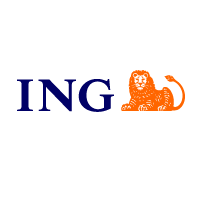New evidence confirms a long-held theory that people with schizophrenia hear ‘voices’ in their heads by misattributing inner speech as external.
“This idea’s been around for 50 years, but it’s been very difficult to test because inner speech…

New evidence confirms a long-held theory that people with schizophrenia hear ‘voices’ in their heads by misattributing inner speech as external.
“This idea’s been around for 50 years, but it’s been very difficult to test because inner speech…

A district and sessions court in Islamabad on Tuesday issued non-bailable arrest warrants for former Khyber Pakhtunkhwa chief minister and PTI leader Ali Amin Gandapur in a case pertaining to the recovery of liquor and illegal weapons.
Judicial…

Jennifer Aniston, 56, is no longer dwelling on what might have been, especially when it comes to motherhood.
The actor said she’s come to terms with not having kids after years of navigating fertility challenges and…

Key events
In September alone, UK borrowing rose to £20.2bn, as the public sector spent more than it received in taxes and other income last month.
That’s £1.6bn more than in September 2024 and the highest September borrowing since 2020.
Nearly half of that deficit was due to the cost of servicing the existing national debt.
The ONS explains:
central government debt interest payable increased by £3.8bn to £9.7bn, with movements in the Retail Prices Index (RPI) adding volatility to the monthly debt interest costs.
Today’s public finances also show:
central government departmental spending on goods and services increased by £2.6bn to £38.3bn, as pay rises and inflation increased running costs
net social benefits paid by central government increased by £2.0bn to £27.5bn, largely caused by inflation-linked increases in many benefits and earnings-linked increases to State Pension payments
payments to support the day-to-day running of local government decreased by £1.1bn to £10.0bn; these intra-government transfers are both central government spending and a local government receipt, so they have no effect on overall public sector borrowing
Newsflash: UK government borrowing is running at its highest level since the Covid-19 pandemic in the first half of this tax year, eating into chancellor Rachel Reeves’s headroom.
The Office for National Statistics has reported that the government has borrowed £99.8bn so far this finanical year – which is £11.5bn more than in April-September 2024.
That’s the second-highest April to September borrowing since monthly records began in 1993, after that of 2020.
The problem for Reeves is that this is £7.2bn more than the £92.6bn forecast by the Office for Budget Responsibility back in March. That shortfall creates pressure on the chancellor to raise taxes or cut spending to keep within her fiscal rules (to have debt falling in five years time).
Martin Beck, chief economist at WPI Strategy, says there is little relief for the Chancellor as borrowing remains stubbornly high. adding:
“As things stand, total borrowing in 2025–26 could overshoot the OBR’s full-year forecast by around £10bn, pushing the deficit to close to 5% of GDP.
That’s uncomfortably large for an economy operating near full employment and long past the shocks of the pandemic and energy crisis.
Still, the public sector’s sizeable deficit is partly a mirror image of the large financial surplus being run by households, and therefore not wholly within the government’s control.
Eva Corlett
Workers were sent home, exams were delayed, coffee machines had to be turned on manually and language app users feared their hard-won progress was lost as a result of the global outage of Amazon Web Services on Monday, as some made light of their briefly tech-free existence.
A glitch in the AWS cloud computing service brought down apps and websites for millions of users around the world affecting more than 2,000 companies, including Snapchat, Roblox, Signal and language app Duolingo as well as a host of Amazon-owned operations.
But amid the chaos affecting vital services around the world, some more unexpected consequences arose.
Amazon workers posted videos of themselves on TikTok relishing a slower work day, with some dancing in quiet warehouses, while others told CNN they had been sent home.
James from Texas told the network:
“Working for Amazon Flex we’ve been sent home due to their systems not being able to check us in or release us with pay. Because of this outage there’s no telling if the 80 of us here are going to be paid.”
Good morning, and welcome to our rolling coverage of business, the financial markets and the world economy.
The worst disruption to hit the internet in over a year appears to be over.
Amazon has declared that its cloud service has returned to normal operations, ending an outage that brought down thousands of sites annd many popular apps, including Snapchat, Duolingo, Fortnite and Reddit.
At around midnight UK time, Amazon Web Services declared that its services were fully recovered, after its operations in the North Virginia region were hit by increased error rates and latencies, with a knock-on impact on other regions.
Amazon did caution that some services still had a backlog of messages that they will finish processing, and promised to share a “detailed AWS post-event summary.”
The outage – the largest since CrowdStrike’s glitch in 2024 – has highlighted the vulnerability of the world’s interconnected technologies, and the perils of relying on relatively few massive tech companies.
Dr Corinne Cath-Speth, the head of digital at human rights organisation Article 19, said:
“We urgently need diversification in cloud computing. The infrastructure underpinning democratic discourse, independent journalism and secure communications cannot be dependent on a handful of companies.”
Cori Crider, the executive director of the Future of Technology Institute, a thinktank that supports a sovereign technology framework for Europe, said:
“The UK can’t keep leaving its critical infrastructure at the mercy of US tech giants. With Amazon Web Services down, we’ve seen the lights go out across the modern economy – from banking to communications.”
7am BST: UK public finances for September
9.55am BST: Chancellor Rachel Reeves to speak at a regional investment summit in Birmingham
11.30am BST: Bank of England’s Andrew Bailey and Sarah Breeden testify to Lords Financial Services Regulation Committee

Chronic insomnia is emerging as a widespread health challenge, affecting productivity, emotional balance, and overall quality of life. Irregular routines, poor dietary habits, and high stress levels have created this “silent crisis”, says Dr…

GSK plc (LSE/NYSE: GSK) and Spero Therapeutics (Nasdaq: SPRO) today announced full results of the positive pivotal phase III PIVOT-PO trial evaluating tebipenem HBr, an investigational oral treatment for complicated urinary tract infections (cUTIs), including pyelonephritis (NCT06059846). These results were presented on 20 October 2025 in a late-breaking oral abstract session at ID Week 2025 in Atlanta, USA.
Complicated UTIs represent an important health issue, with an estimated 2.9 million cases treated annually in the US alone.2 These infections are often caused by multidrug-resistant pathogens3 and carry serious risks including organ failure, sepsis, and even death.3-5 They also result in significant emergency department visits and hospitalisations, contributing to over $6 billion per year in healthcare costs.6 Current standard of care includes carbapenem antibiotics in cases of sepsis or resistance to other antibiotics but they are only available for intravenous administration typically occurring in hospital setting.7,8
The trial, which was stopped early for efficacy in May, demonstrated non-inferiority of tebipenem HBr compared to intravenous imipenem-cilastatin in hospitalised patients with cUTI, including pyelonephritis, based on the overall response (composite of clinical cure plus microbiological eradication of the bacteria causing the infection) at the test of cure visit. Tebipenem HBr (oral, 600 mg) achieved a 58.5% overall success rate (261/446 participants) compared to 60.2% overall success rate (291/483 participants) for imipenem-cilastatin (intravenous, 500 mg) (adjusted treatment difference: −1.3%; 95% CI: −7.5%, 4.8%). The safety profile of tebipenem HBr was generally similar to that of imipenem-cilastatin and other carbapenem antibiotics. The most frequently reported adverse events (in ≥3% of patients who received tebipenem HBr) were diarrhea and headache; these events were all mild or moderate and non-serious.
Tony Wood, Chief Scientific Officer, GSK, said: “Complicated UTIs can have serious consequences for patients, including organ failure and sepsis, and oral options for drug-resistant infections are limited. These ground-breaking data show for the first time that cUTIs, including pyelonephritis, can be treated with an oral carbapenem antibiotic as effectively as with an intravenous one. We have a long-standing commitment to delivering novel anti-infectives and are delighted to offer the potential of tebipenem HBr as an effective oral alternative that could be taken at home”.
Esther Rajavelu, Chief Executive Officer, Spero Therapeutics, said: “These data presented at IDWeek represent the culmination of years of dedicated work by our team in close collaboration with GSK. We are deeply grateful to the physicians, researchers, support staff, and, most importantly, to the patients who made this study, and the ones before it, possible. Along with GSK, we are now focused on advancing tebipenem HBr toward FDA submission and bringing this important therapy to patients in need.”
Dr George Sakoulas, Adjunct Professor Department of Pediatrics, UCSD School of Medicine and Chief Infectious Diseases Sharp Rees Stealy Medical Group, commented: “Increasing antibiotic resistance among community-acquired bacteria that cause cUTIs is greatly amplifying the burden of treatment for patients, clinicians, and payers. The therapeutic flexibility of a new oral antibiotic may reduce the need for intravenous antibiotics to treat cUTI, providing benefit to patients and improving treatment options.”
Secondary endpoints also show:
GSK plans to work with US regulatory authorities to include the data as part of a filing in Q4 2025. If approved, tebipenem HBr would be the first oral carbapenem antibiotic in the US for patients who suffer from cUTIs, adding to GSK’s growing anti-infectives portfolio and helping address the challenges of antimicrobial resistance (AMR).
The development of tebipenem HBr is supported in part with federal funds from the U.S. Department of Health and Human Services; Administration for Strategic Preparedness and Response; Biomedical Advanced Research and Development Authority (BARDA), under contract number HHSO100201800015C.
Tebipenem pivoxil as hydrobromide salt (Tebipenem HBr) is a late-stage development asset developed in collaboration with Spero Therapeutics. Tebipenem HBr is being developed to treat cUTIs, including pyelonephritis. In September 2022, GSK entered into an exclusive license agreement with Spero Therapeutics for the development and commercialisation of tebipenem HBr in all markets, except certain Asian territories. Under this agreement GSK has sub-licensed back to Spero Therapeutics the rights and responsibility to conduct certain development work including the PIVOT-PO Phase III study, after which sponsorship of the new drug application (NDA) will be transferred to GSK from Spero Therapeutics. Tebipenem HBr has received Qualified Infectious Disease Product (QIDP) and Fast Track designations from the US FDA.
PIVOT-PO was a global, randomised, double-blind, pivotal, non-inferiority (NI margin: -10%) Phase III clinical trial of oral tebipenem HBr compared to IV imipenem-cilastatin, in hospitalised adult patients with cUTI including pyelonephritis. Patients were randomised 1:1 to receive tebipenem pivoxil (600 mg) orally every six hours, or imipenem-cilastatin (500 mg) IV every six hours, for a total of seven to ten days. Matching placebos were used to maintain blinding. The primary efficacy endpoint was overall response (composite of clinical cure plus microbiological eradication) at the test-of-cure visit (about 17 days from first dose administration of study drug) in patients with qualifying pathogens susceptible to imipenem. The trial enrolled a total of 1,690 patients, with randomisation stratified by age, baseline diagnosis (cUTI or pyelonephritis), and the presence or absence of urinary tract instrumentation. For further details on the trial, refer to clinicaltrials.gov identifier NCT06059846.
cUTIs are broadly described as any UTI that carries an increased risk of morbidity and mortality.3 Definitions of cUTIs are not currently uniform among international societies and regulatory agencies.5, 9 cUTIs encompass a heterogeneous patient population due to the wide range of host factors, comorbidities and urological abnormalities associated with cUTIs.5, 9 Risk factors for cUTI include indwelling catheters, ureteric stents, neurogenic bladder, obstructive uropathy, urinary retention, urinary diversion, kidney stones, diabetes mellitus, immune deficiency, urinary tract modification, and UTIs in renal transplant patients.3, 10-13
GSK has pioneered innovation in infectious diseases for over 70 years, and the Company’s pipeline of medicines and vaccines is one of the largest and most diverse in the industry, with a goal of developing preventive and therapeutic treatments for multiple disease areas or diseases with high unmet needs globally. Our expertise and capabilities in infectious disease strongly position us to help prevent and treat disease, and potentially mitigate the challenge of antimicrobial resistance (AMR).
Spero Therapeutics, headquartered in Cambridge, Massachusetts, is a clinical-stage biopharmaceutical company focused on identifying and developing novel treatments for rare diseases and multi-drug resistant (MDR) bacterial infections with high unmet need. For more information, visit www.sperotherapeutics.com
GSK is a global biopharma company with a purpose to unite science, technology, and talent to get ahead of disease together. Find out more at gsk.com.
GSK cautions investors that any forward-looking statements or projections made by GSK, including those made in this announcement, are subject to risks and uncertainties that may cause actual results to differ materially from those projected. Such factors include, but are not limited to, those described in the “Risk Factors” section in GSK’s Annual Report on Form 20-F for 2024, and GSK’s Q2 Results for 2025.

Amsterdam,
ING announced today that, as part of our €2.0 billion share buyback programme announced on 2 May 2025, in total 4,381,000 shares were repurchased during the week of 13 October 2025 up to and including 17 October 2025.
The shares were repurchased at an average price of €20.91 for a total amount of €91,614,268.60. For detailed information on the daily repurchased shares, individual share purchase transactions and weekly reports, see share buy back programme.
.
In line with the purpose of the programme to reduce the share capital of ING, the total number of shares repurchased under this programme to date is 96,504,891 at an average price of €19.72 for a total consideration of €1,903,541,763.32. To date approximately 95.18% of the maximum total value of the share buyback programme has been completed.
More on investor information, go to the investor relations section on this site.
For news updates, go to the newsroom on this site or via X (@ING_news feed).
For ING photos such as board members, buildings, go to Flickr.
ING is a global financial institution with a strong European base, offering banking services through its operating company ING Bank. The purpose of ING Bank is: empowering people to stay a step ahead in life and in business. ING Bank’s more than 60,000 employees offer retail and wholesale banking services to customers in over 100 countries.
ING Group shares are listed on the exchanges of Amsterdam (INGA NA, INGA.AS), Brussels and on the New York Stock Exchange (ADRs: ING US, ING.N).
ING aims to put sustainability at the heart of what we do. Our policies and actions are assessed by independent research and ratings providers, which give updates on them annually. ING’s ESG rating by MSCI was reconfirmed by MSCI as ‘AA’ in August 2024 for the fifth year. As of December 2023, in Sustainalytics’ view, ING’s management of ESG material risk is ‘Strong’. Our current ESG Risk Rating, is 17.2 (Low Risk). ING Group shares are also included in major sustainability and ESG index products of leading providers. Here are some examples: Euronext, STOXX, Morningstar and FTSE Russell. Society is transitioning to a low-carbon economy. So are our clients, and so is ING. We finance a lot of sustainable activities, but we still finance more that’s not. Follow our progress on ing.com/climate.
Elements of this press release contain or may contain information about ING Groep N.V. and/ or ING Bank N.V. within the meaning of Article 7(1) to (4) of EU Regulation No 596/2014 (‘Market Abuse Regulation’).
ING Group’s annual accounts are prepared in accordance with International Financial Reporting Standards as adopted by the European Union (‘IFRS- EU’). In preparing the financial information in this document, except as described otherwise, the same accounting principles are applied as in the 2024 ING Group consolidated annual accounts. All figures in this document are unaudited. Small differences are possible in the tables due to rounding.
Certain of the statements contained herein are not historical facts, including, without limitation, certain statements made of future expectations and other forward-looking statements that are based on management’s current views and assumptions and involve known and unknown risks and uncertainties that could cause actual results, performance or events to differ materially from those expressed or implied in such statements. Actual results, performance or events may differ materially from those in such statements due to a number of factors, including, without limitation: (1) changes in general economic conditions and customer behaviour, in particular economic conditions in ING’s core markets, including changes affecting currency exchange rates and the regional and global economic impact of the invasion of Russia into Ukraine and related international response measures (2) changes affecting interest rate levels (3) any default of a major market participant and related market disruption (4) changes in performance of financial markets, including in Europe and developing markets (5) fiscal uncertainty in Europe and the United States (6) discontinuation of or changes in ‘benchmark’ indices (7) inflation and deflation in our principal markets (8) changes in conditions in the credit and capital markets generally, including changes in borrower and counterparty creditworthiness (9) failures of banks falling under the scope of state compensation schemes (10) non- compliance with or changes in laws and regulations, including those concerning financial services, financial economic crimes and tax laws, and the interpretation and application thereof (11) geopolitical risks, political instabilities and policies and actions of governmental and regulatory authorities, including in connection with the invasion of Russia into Ukraine and the related international response measures (12) legal and regulatory risks in certain countries with less developed legal and regulatory frameworks (13) prudential supervision and regulations, including in relation to stress tests and regulatory restrictions on dividends and distributions (also among members of the group) (14) ING’s ability to meet minimum capital and other prudential regulatory requirements (15) changes in regulation of US commodities and derivatives businesses of ING and its customers (16) application of bank recovery and resolution regimes, including write down and conversion powers in relation to our securities (17) outcome of current and future litigation, enforcement proceedings, investigations or other regulatory actions, including claims by customers or stakeholders who feel misled or treated unfairly, and other conduct issues (18) changes in tax laws and regulations and risks of non-compliance or investigation in connection with tax laws, including FATCA (19) operational and IT risks, such as system disruptions or failures, breaches of security, cyber-attacks, human error, changes in operational practices or inadequate controls including in respect of third parties with which we do business and including any risks as a result of incomplete, inaccurate, or otherwise flawed outputs from the algorithms and data sets utilized in artificial intelligence (20) risks and challenges related to cybercrime including the effects of cyberattacks and changes in legislation and regulation related to cybersecurity and data privacy, including such risks and challenges as a consequence of the use of emerging technologies, such as advanced forms of artificial intelligence and quantum computing (21) changes in general competitive factors, including ability to increase or maintain market share (22) inability to protect our intellectual property and infringement claims by third parties (23) inability of counterparties to meet financial obligations or ability to enforce rights against such counterparties (24) changes in credit ratings (25) business, operational, regulatory, reputation, transition and other risks and challenges in connection with climate change, diversity, equity and inclusion and other ESG-related matters, including data gathering and reporting and also including managing the conflicting laws and requirements of governments, regulators and authorities with respect to these topics (26) inability to attract and retain key personnel (27) future liabilities under defined benefit retirement plans (28) failure to manage business risks, including in connection with use of models, use of derivatives, or maintaining appropriate policies and guidelines (29) changes in capital and credit markets, including interbank funding, as well as customer deposits, which provide the liquidity and capital required to fund our operations, and (30) the other risks and uncertainties detailed in the most recent annual report of ING Groep N.V. (including the Risk Factors contained therein) and ING’s more recent disclosures, including press releases, which are available on www.ING.com.
This document may contain ESG-related material that has been prepared by ING on the basis of publicly available information, internally developed data and other third-party sources believed to be reliable. ING has not sought to independently verify information obtained from public and third-party sources and makes no representations or warranties as to accuracy, completeness, reasonableness or reliability of such information.
Materiality, as used in the context of ESG, is distinct from, and should not be confused with, such term as defined in the Market Abuse Regulation or as defined for Securities and Exchange Commission (‘SEC’) reporting purposes. Any issues identified as material for purposes of ESG in this document are therefore not necessarily material as defined in the Market Abuse Regulation or for SEC reporting purposes. In addition, there is currently no single, globally recognized set of accepted definitions in assessing whether activities are “green” or “sustainable.” Without limiting any of the statements contained herein, we make no representation or warranty as to whether any of our securities constitutes a green or sustainable security or conforms to present or future investor expectations or objectives for green or sustainable investing. For information on characteristics of a security, use of proceeds, a description of applicable project(s) and/or any other relevant information, please reference the offering documents for such security.
This document may contain inactive textual addresses to internet websites operated by us and third parties. Reference to such websites is made for information purposes only, and information found at such websites is not incorporated by reference into this document. ING does not make any representation or warranty with respect to the accuracy or completeness of, or take any responsibility for, any information found at any websites operated by third parties. ING specifically disclaims any liability with respect to any information found at websites operated by third parties. ING cannot guarantee that websites operated by third parties remain available following the publication of this document, or that any information found at such websites will not change following the filing of this document. Many of those factors are beyond ING’s control.
Any forward-looking statements made by or on behalf of ING speak only as of the date they are made, and ING assumes no obligation to publicly update or revise any forward-looking statements, whether as a result of new information or for any other reason.
This document does not constitute an offer to sell, or a solicitation of an offer to purchase, any securities in the United States or any other jurisdiction.

It’s one of many special days on the Week 1 calendar; there’s also Emirates Day (20 January), Hot Shots Day (22 January) – on which the AO Ballpark comes alive with mini courts, games, and activities for kids of all ages – and Kia Sunday…

Scientists at the University of East Anglia and Oxford Biodynamics have developed a…

For most enterprise companies, AI is either a promise that has yet to deliver or a security risk. The effort of Lithuania’s most famous entrepreneur duo to solve that conundrum has garnered attention — and funding.
Just months after